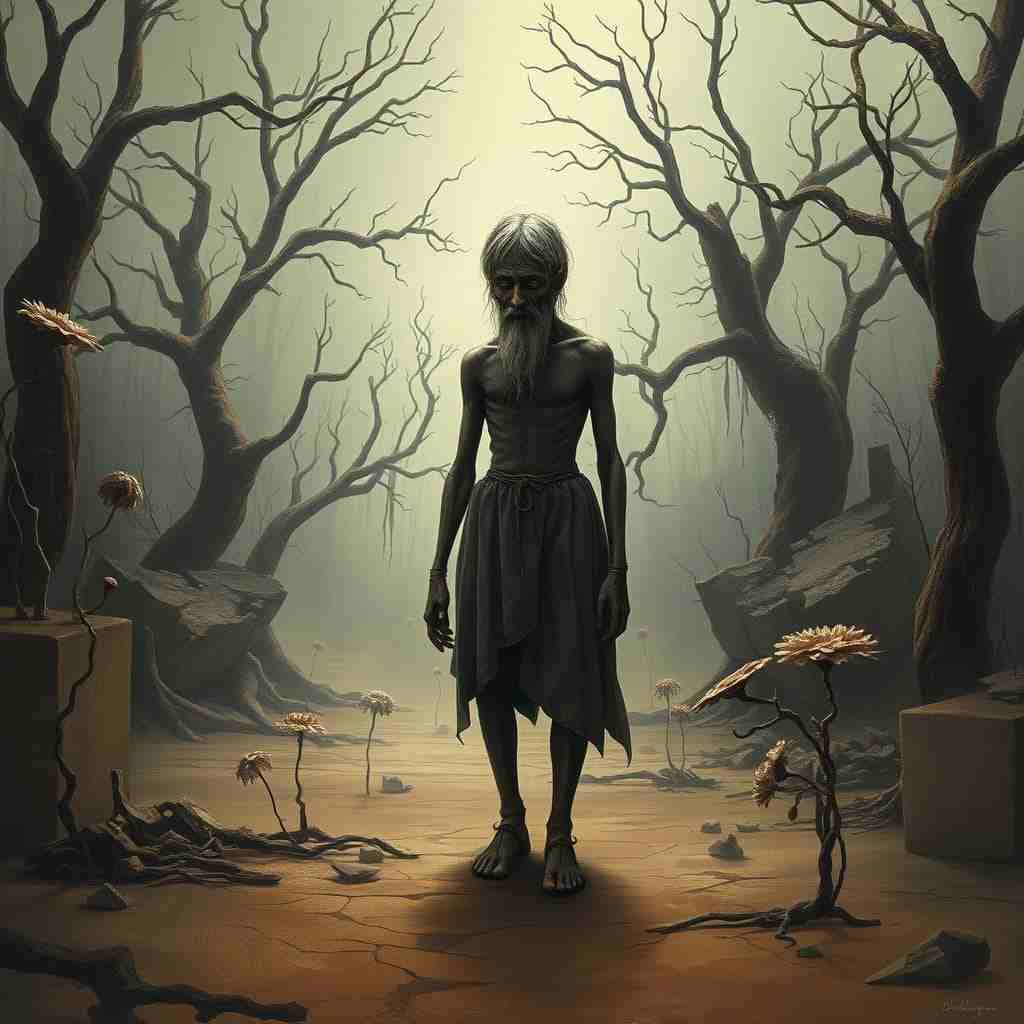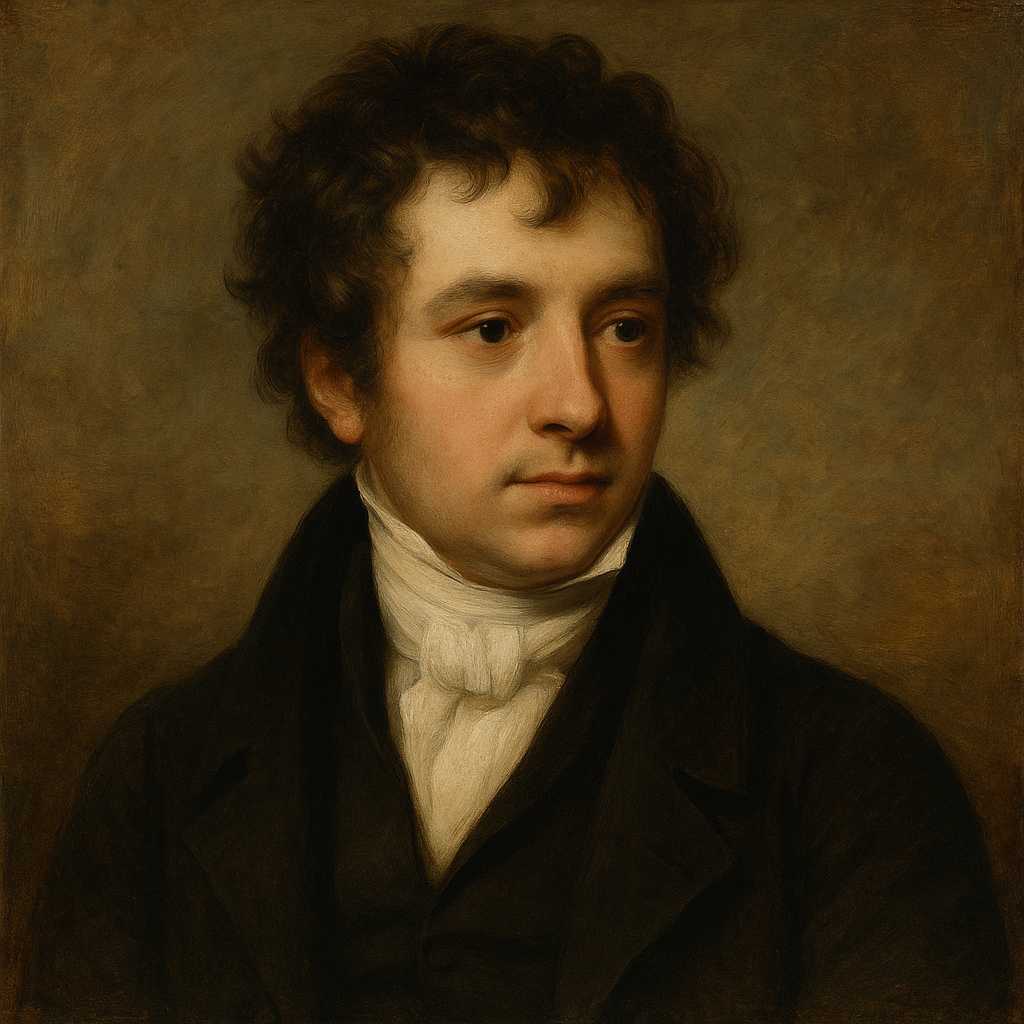Long time a child, and still a child
Hartley Coleridge
1796 to 1849

Long time a child, and still a child, when years
Had painted manhood on my cheek, was I,—
For yet I lived like one not born to die;
A thriftless prodigal of smiles and tears,
No hope I needed, and I knew no fears.
But sleep, though sweet, is only sleep, and waking,
I waked to sleep no more, at once o’ertaking
The vanguard of my age, with all arrears
Of duty on my back. Nor child, nor man,
Nor youth, nor sage, I find my head is grey,
For I have lost the race I never ran:
A rathe December blights my lagging May;
And still I am a child, tho’ I be old,
Time is my debtor for my years untold.
Hartley Coleridge's Long time a child, and still a child
Hartley Coleridge’s sonnet reflects on the passage of time, self-awareness, and the paradoxes of human growth and stagnation. Written in a contemplative tone, the poem intertwines personal lament with universal themes of lost potential, unfulfilled expectations, and the inexorable movement of time. Below is a detailed analysis of the poem’s structure, language, and themes.
Introduction to Form and Structure
The poem is a sonnet, adhering to a 14-line structure with elements reminiscent of the Petrarchan form. The octet (first eight lines) establishes a personal narrative of youthful innocence and ignorance, while the sestet (final six lines) transitions into the speaker’s reflection on maturity, regret, and the irrevocability of time. The poem follows a rhyme scheme of ABBA ACCA DEDEFF, showing variation from strict sonnet conventions, which echoes the speaker’s inner discord.
The meter is predominantly iambic pentameter, lending a rhythmic consistency that contrasts with the themes of personal disarray and wasted time. This tension between structure and content underscores the speaker’s conflict.
Line-by-Line Analysis
Lines 1–4:
Long time a child, and still a child, when years
Had painted manhood on my cheek, was I,—
For yet I lived like one not born to die;
A thriftless prodigal of smiles and tears,
The opening lines establish the speaker’s prolonged childlike state, both physically and emotionally. The repetition of “child” emphasizes stasis, suggesting that even as external markers (e.g., “manhood on my cheek”) indicated maturity, the speaker’s inner self remained unformed. The juxtaposition of outward appearance and inner immaturity evokes a sense of dissonance.
The metaphor of being a “thriftless prodigal” recalls the Biblical parable of the Prodigal Son, implying wastefulness—not of material wealth but of emotional energy, squandered on unproductive joys (“smiles”) and sorrows (“tears”). The phrase “not born to die” suggests a state of unawareness of mortality, highlighting a naïve, almost timeless existence.
Lines 5–8:
No hope I needed, and I knew no fears.
But sleep, though sweet, is only sleep, and waking,
I waked to sleep no more, at once o’ertaking
The vanguard of my age, with all arrears
The speaker describes a carefree existence devoid of ambition or dread, a state of complacency that sleep metaphorically represents. However, the turning point begins with “waking,” a metaphor for a painful confrontation with reality and the responsibilities of adulthood.
The phrase “at once o’ertaking / The vanguard of my age” is poignant; it suggests that the speaker has suddenly become acutely aware of the passage of time, burdened by “arrears / Of duty.” The use of “arrears,” a financial term, implies an accumulating debt to life, responsibilities left unfulfilled during the speaker’s prolonged immaturity.
Lines 9–12:
Nor child, nor man,
Nor youth, nor sage, I find my head is grey,
For I have lost the race I never ran:
A rathe December blights my lagging May;
The sestet opens with a striking identity crisis: the speaker is “nor child, nor man, / Nor youth, nor sage.” This catalog of negations underscores a profound disconnection from all traditional stages of life, suggesting that the speaker inhabits a liminal, undefined space.
The image of “grey” hair is an unmistakable marker of aging, symbolizing time’s physical toll. However, the speaker’s lament is compounded by the perception that this aging has occurred without true engagement with life’s journey (“I have lost the race I never ran”). This paradox is captured through the juxtaposition of “rathe December” (early winter) and “lagging May” (spring), conveying an unnatural, premature decline.
Lines 13–14:
And still I am a child, tho’ I be old,
Time is my debtor for my years untold.
The closing couplet reinforces the paradox of aging without maturation. Despite the passage of time, the speaker’s inner self remains “a child,” unable to reconcile the disjunction between chronological age and emotional or spiritual growth. The final line shifts blame to “Time,” personified as a debtor, suggesting that the speaker feels cheated of opportunities to fulfill their potential.
This inversion of responsibility—from self to an external force—resonates with the earlier theme of unfulfilled duties. It is both an elegy for lost youth and an indictment of time’s unforgiving nature.
Themes
-
The Paradox of Growth and Stasis
The poem explores the disjunction between physical aging and emotional or spiritual development. The speaker’s confession of remaining “a child” despite outward signs of maturity reflects a broader existential anxiety about the passage of time. -
Regret and Unfulfilled Potential
The metaphor of a “race never ran” encapsulates the speaker’s lament for a life unpursued, emphasizing wasted opportunities and an inability to engage with life’s responsibilities. -
Time as a Double-Edged Force
Time is portrayed as both a thief and a creditor, inexorably advancing while leaving the speaker with a sense of unfulfilled debts. This duality mirrors the speaker’s ambivalence toward life’s fleeting nature. -
Mortality and Awareness
The awakening to mortality, depicted as “waking to sleep no more,” serves as the catalyst for the speaker’s reflective grief. The poem meditates on the tension between the inevitability of death and the squandered gift of life.
Conclusion
Hartley Coleridge’s sonnet is a profound meditation on time, identity, and human fallibility. Through vivid imagery, deft use of metaphor, and a structure that reflects the speaker’s inner turmoil, the poem encapsulates the universal tension between the promises of youth and the regrets of age. The speaker’s plaintive tone and paradoxical self-awareness resonate deeply, offering a timeless reflection on the complexities of growing up—and growing old—without ever truly living.
This text was generated by AI and is for reference only. Learn more
Want to join the discussion? Reopen or create a unique username to comment. No personal details required!



Comments
No comments yet. Be the first to comment!